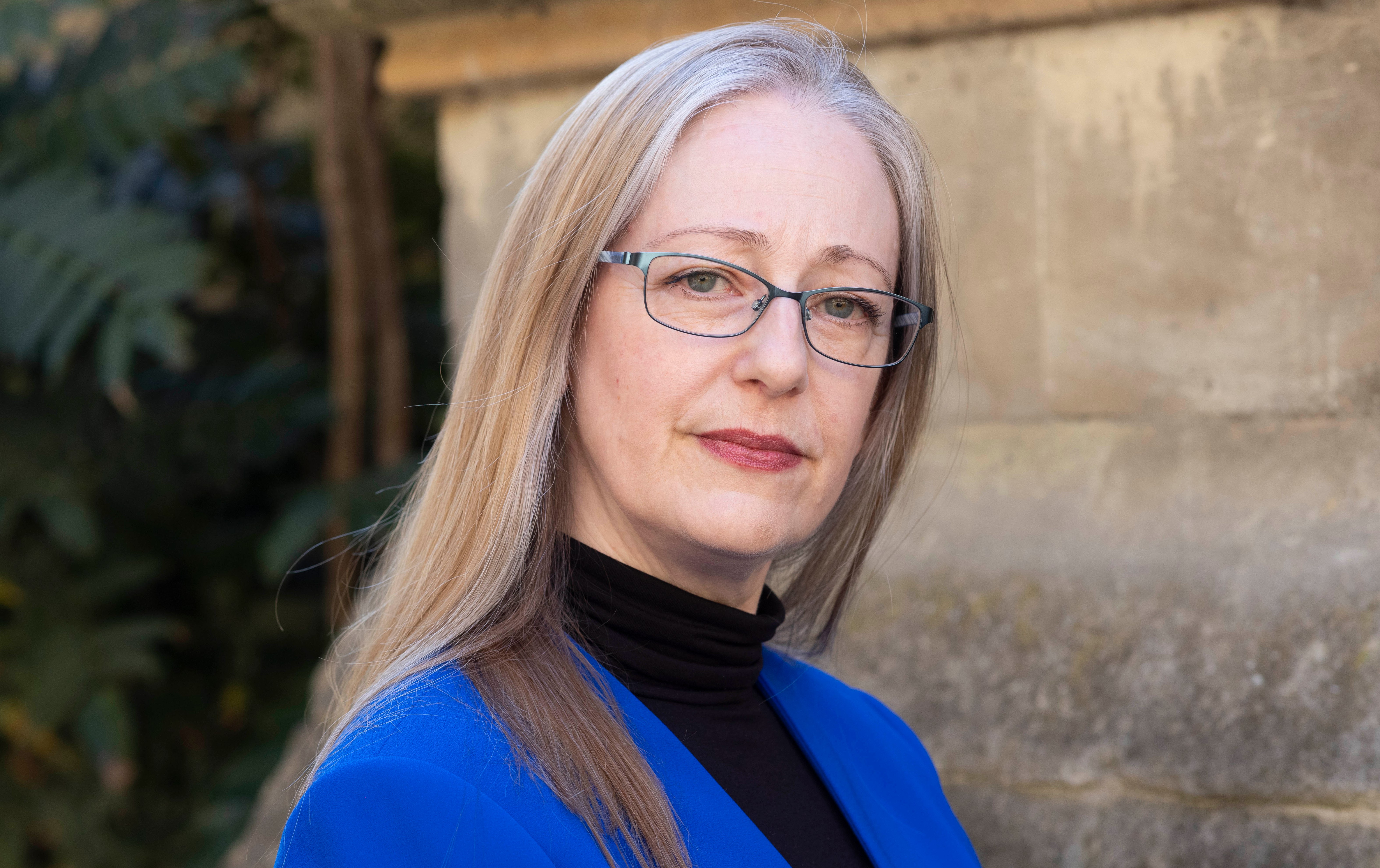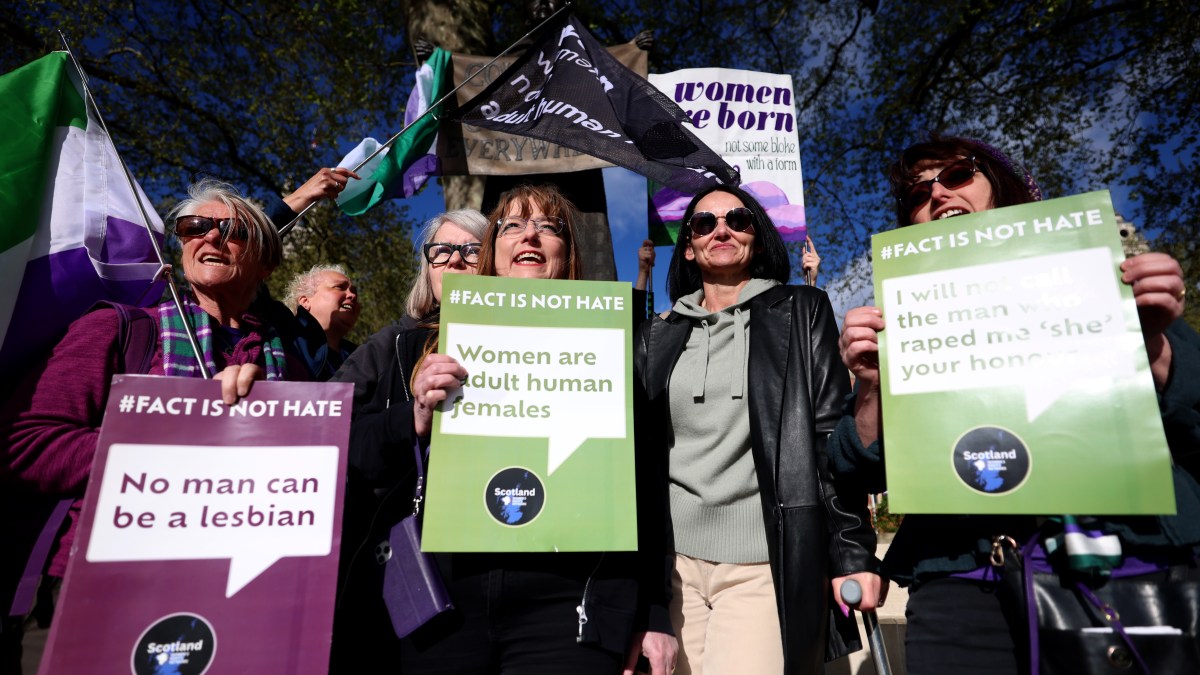Mental health hospitals responsible for violent criminals have policies which allow biologically male patients to “self identify” as women, an audit has revealed.
Campaigners warned that NHS trusts are “playing Russian roulette with women’s safety” by placing transgender women — who were born male — on female wards.
In some cases, hospitals acknowledged that some trans patients may pose a “risk to a particular gender” or be “sexually disinhibited” and “very distressing for other patients on a single-sex ward”.

Broadmoor Hospital has guidelines which instruct staff to refer to patients by the gender they prefer
NEIL HALL/REX/SHUTTERSTOCK
A women’s rights group used freedom of information laws to obtain sex and gender policies at NHS mental health trusts in London, covering hospitals such as Broadmoor which looks after “forensic patients” — those detained in a mental health service as an alternative to prison.
The audit, shared with The Times, found that the trusts allow biological men to be placed on single-sex female wards and spaces if they identify as a woman.
One trust, South West London and St George’s, suggested that it may sometimes be appropriate to put forensic trans patients on a ward in line with their biological sex “while they are acutely unwell” due to being a possible “risk to a particular gender”. The policy document added: “Once they have recovered and have regained capacity it would be essential to reassess the risk … and if safe and appropriate, to arrange a move to a ward in accordance with their correct gender.”
The trust also gave the example of a trans patient getting undressed in front of members of the opposite sex and revealing their genitals.
It said: “A patient with bipolar (who happens also to be trans) who is in a manic state and who does not have capacity may be disinhibited and at risk of disrobing in public. Depending on where they are in their transition, it may be more appropriate for them to be admitted to a ward that is in line with their birth gender … while they are acutely unwell and at risk of ‘outing’ themselves.”
Other NHS trusts have similar policies. Central and North Western London said that it “respects an individual’s right to self-identify as male or female”, and that transgender women have the right to access women’s support groups and toilets.
However, it said that, in some cases, “further consideration may be needed as to how best to manage a trans individual”. It gave the example of how “a sexually disinhibited pre-operative transsexual individual may be very distressing for other patients on a single sex ward”.
• Trans row nurse demands union clarifies position on single-sex spaces
West London NHS Trust, which runs the high-security Broadmoor Hospital — known for housing serial killers, including the late Peter Sutcliffe, the “Yorkshire Ripper” — said: “Staff must use names, titles and hospital accommodation that the service user regards as appropriate.”
The NHS is currently reviewing its guidelines on same-sex accommodation after the Supreme Court ruling that sex means biological sex. Under the current NHS guidelines, written in 2019, trans people should be accommodated according to the way they dress, their names and pronouns; rather than sex.
A women’s rights campaigner involved in the audit said: “We have found examples of NHS trusts allowing forensic patients who were born male to self-identify as women.
“Forensic patients are those referred to the NHS from court or prison. They have been deemed a risk to themselves and others. They often have violent offending profiles. It is scary to think that their gender identity would override the safety and dignity of women.
“NHS Trusts are playing Russian roulette with women’s safety. The Supreme Court ruling clarified that single-sex spaces must be single sex, and it is vital that this is now enforced nationally across all hospitals.”
There have been several high profile cases in which trans NHS staff or patients have accessed women’s wards, changing rooms or lavatories.
In 2021, an NHS hospital in Kent dismissed a claim of rape on a women’s ward when police investigated because there was “no man on the ward” as the alleged attacker was transgender, the House of Lords was told.
Helen Joyce, the director of advocacy at Sex Matters, said: “It’s deeply disturbing that the safety and welfare of some of the most vulnerable women in London — those in the care of state mental health services — are being so seriously compromised by NHS trusts.
“The Supreme Court judgment was crystal-clear that single-sex services must be run on the basis of biological sex. There is no excuse for a dangerous ‘case-by-case’ approach that deems some men safe to be housed in women’s accommodation.

Helen Joyce, the director of advocacy at Sex Matters
DAVID HARTLEY
“These NHS trusts are missing the point: no male patient should ever be allowed in female accommodation under any circumstances. If health care managers cannot understand why this matters so much in mental health services, then they are not fit to run NHS trusts or to have female patients in their care.”
An NHS spokesperson said: “The NHS is working through the implications of the Supreme Court ruling, and we absolutely recognise the need for revised guidance. It’s important that we wait for the Equality and Human Rights Commission to publish its statutory guidance before final decisions about future policy are taken.
“In the meantime, we are working closely with government to ensure we can provide updated guidance for the health service as soon as possible.”
